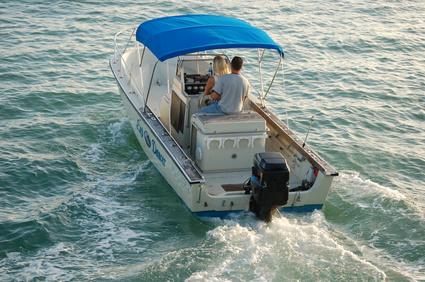A relaxing afternoon on a boat sounds so relaxing. After all the aching, growing, swelling and cramping you’ve been doing, a quiet afternoon under the sun may be just what the doctor ordered. Pregnancy brings some complications to your boat trip, so consult a doctor and boat staff member before hopping aboard.
Types
Boating may take a variety of forms, which will influence your decision to go out while pregnant. If you, your friends or your family own a small motor boat or sail boat, you have probably been out a number of times and can determine the personal risks. If you are taking a ferry, small tourist boat or cruise, the staff can let you know ahead of time what their regulations and preparations are regarding pregnant riders.
Features
Whether you are on a large or small boat, you may experience motion sickness. Even if you have never felt motion sickness before, the rocking of the boat and the morning sickness could make you nauseated. Stay in the middle of the boat and travel on days with fair weather. If you start to feel motion sick, use an acupuncture bracelet and look at the horizon to correct this. Any oral medication is not recommended for the baby.
Time Frame
The best time for a pregnant woman to travel is during her second trimester. The first and third trimesters are the most precarious times during a woman’s pregnancy. Short trips out on a motor or sail boat are more conducive to a woman throughout her pregnancy as she can make it back to land within a few hours if necessary. Cruises take her away from home for days so they will need to be researched more carefully.
Considerations
Cruises should have health care professionals on board. Since they often leave the country and travel long distances, you should make sure there are facilities on board to care for you and the baby should a problem arise. Research all the ports of call as well, to make sure there are practitioners and hospitals equipped to answer problems.
Expert Advice
The American Congress of Obstetricians and Gynecologists (ACOG) notes deep vein thrombosis as a travel concern for pregnant women. Pregnant women who sit for too long risk blood clots in their legs. Drink lots of water and move often, when traveling on a boat, to prevent deep vein thrombosis.
Photo Credit
- boating lesson image by Wimbledon from Fotolia.com





